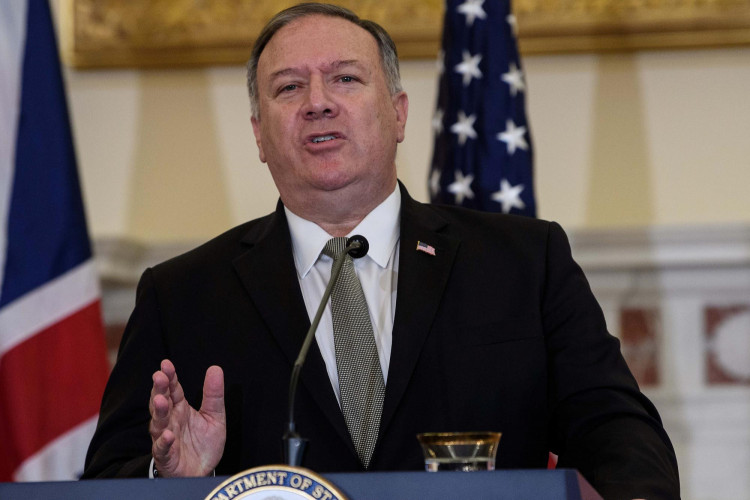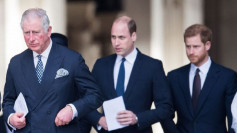As a show of noncompliance to massive international resistance, the U.S. on Wednesday announced it will enforce sanctions against Iran, a move that some countries view as illegal and that could lead to a credibility catastrophe for the U.S. at the United Nations.
In a joint media briefing with British Foreign Secretary Dominic Raab, U.S. State Secretary Mike Pompeo said they will return to the UN to reimplement the sanctions in order to make permanent the U.S.-led arms embargo against the Islamic republic, VOA News reported.
But U.S. allies and other members of the U.N. Security Council contradict Washington's proposition and said they will not honor the measure, potentially setting the stage for a major dispute as the global arbiter prepares to commemorate its 75th founding anniversary next week.
Germany, France, and the UK bared last month that they cannot back the U.S. plans of restoring U.N. sanctions against Tehran, stressing such move is not in consonance with policies to support the Iran nuclear agreement. Elliott Abrams, U.S. special representative for Venezuela and Iran, said whether those nations will not honor the U.N. sanctions remains to be seen.
A total denouncement of the U.S. move could make the Trump administration, which has already backed out of several U.N. bodies and deals, more alienated from the international community. His government's move, Pompeo asserted, are legit U.N. Security Council actions and the U.S. "will do its share as part of its responsibilities to enable peace," the Associated Press quoted him as saying.
U.S. officials have warned that there would be heightened conflicts, regional destabilization, and an arms race without sanctions against Iran. Washington tried to expand an expiring weapons restrictions against the country last month through a resolution at the UN Security Council but to no avail.
Meanwhile, Iran called on the International Court of Justice on Wednesday to hear its side to revoke the American nuclear sanctions, emphasizing that they were "destroying millions of lives," Aljazeera reported.
The ICJ in The Hague is hearing arguments from Washington and Tehran this week before it determines whether it has authority to negotiate with the matter.






